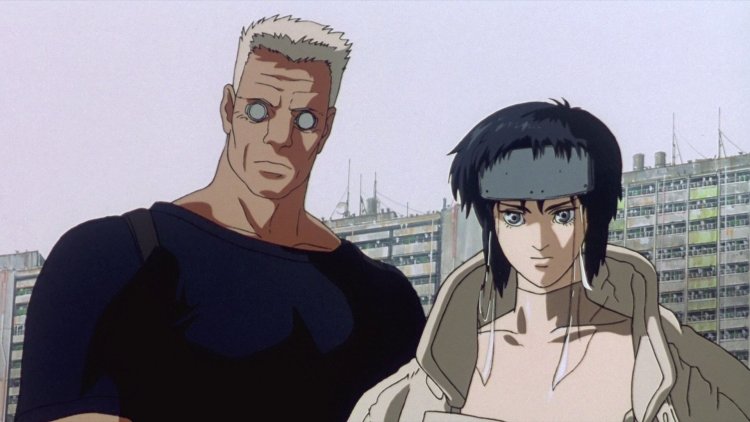'Ghost in the Shell' (1995)
Step into a world where technology blurs the line between humanity and machinery with 'Ghost in the Shell' (1995). This groundbreaking anime film, directed by Mamoru Oshii, explores the existential dilemmas of a near-future society where cybernetic enhancements and artificial intelligence become deeply intertwined. In this article, we delve into the visionary world of 'Ghost in the Shell,' analyzing its profound themes, philosophical underpinnings, and enduring impact on the genre of cyberpunk.

The Cybernetic Landscape
'Ghost in the Shell' transports viewers to a sprawling cityscape in the not-too-distant future, where advancements in cybernetics and interconnected networks have transformed society. The film's setting presents a blend of neon-lit metropolises and decaying urban landscapes, evoking a sense of both awe and unease. It is within this cybernetic landscape that the story unfolds, examining the complex relationships between humans, machines, and the digital realm.
Major Motoko Kusanagi: A Protagonist in Flux
At the center of 'Ghost in the Shell' is Major Motoko Kusanagi, a cyborg operative of Section 9 tasked with combating cyberterrorism. Kusanagi embodies the existential themes explored in the film, as she grapples with questions of identity, individuality, and the nature of consciousness. As a cyborg, she constantly questions her humanity, blurring the boundaries between her physical body and the "ghost" that defines her essence.
The Search for the Puppet Master
The film's narrative revolves around the enigmatic Puppet Master, a highly advanced artificial intelligence with the ability to manipulate and control the thoughts and actions of individuals. Section 9, led by Major Kusanagi, embarks on a relentless pursuit to unravel the Puppet Master's motives and determine the implications of its existence. This quest leads them deep into the realms of cybernetics, philosophy, and the essence of what it means to be human.
Philosophy and Ethical Dilemmas
'Ghost in the Shell' delves into profound philosophical questions, exploring the ethical implications of merging technology and humanity. The film contemplates the nature of self-identity, the impact of memory manipulation, and the boundaries of consciousness. It raises thought-provoking dilemmas surrounding the potential consequences of a society deeply integrated with technology, blurring the line between human and machine.
Visual Prowess and Iconic Imagery
Visually, 'Ghost in the Shell' showcases the artistic brilliance of Mamoru Oshii and the animation studio Production I.G. The film presents a mesmerizing blend of traditional hand-drawn animation and pioneering computer-generated imagery. From the iconic opening sequence of a shapeshifting cityscape to the intricate details of cybernetic enhancements, the visual aesthetics of 'Ghost in the Shell' are both haunting and captivating, leaving an indelible mark on the genre.
Cultural Influence and Legacy
Since its release, 'Ghost in the Shell' has become a cultural touchstone, influencing not only anime and cyberpunk storytelling but also the broader landscape of science fiction. Its exploration of existential themes, visual innovation, and gripping narrative have garnered critical acclaim and a dedicated fanbase. The film's impact extends beyond its own medium, inspiring subsequent adaptations, including live-action films and television series.
Also Check 3 great models of sneakers for this season!
Conclusion
In conclusion, 'Ghost in the Shell' (1995) stands as an iconic masterpiece of the cyberpunk genre, inviting audiences to ponder the complexities of a future where humanity and technology intertwine. Through its philosophical depth, stunning visuals, and unforgettable characters, the film continues to captivate viewers and provoke discussions on the implications of a technologically driven society. Brace yourself for a thought-provoking journey into the depths of the human-machine interface that will leave you questioning the nature of existence itself.




























